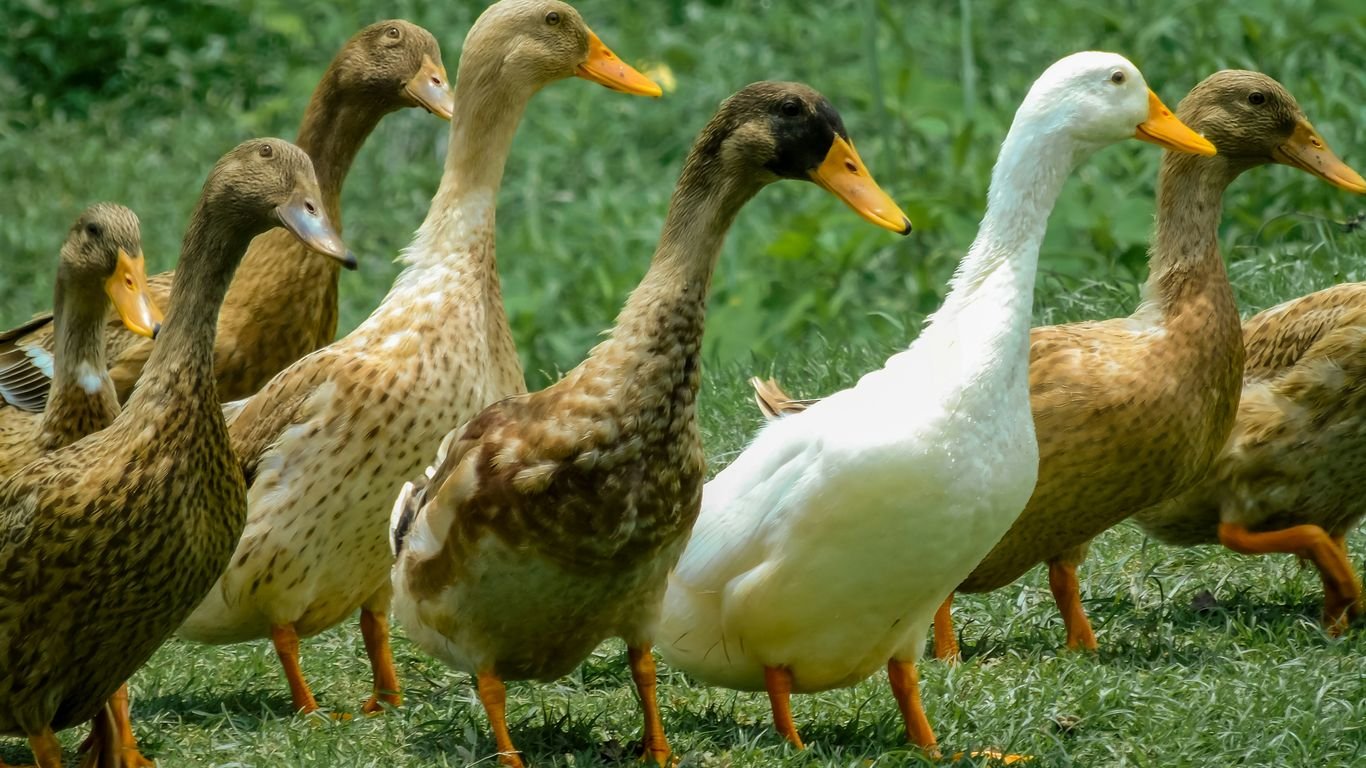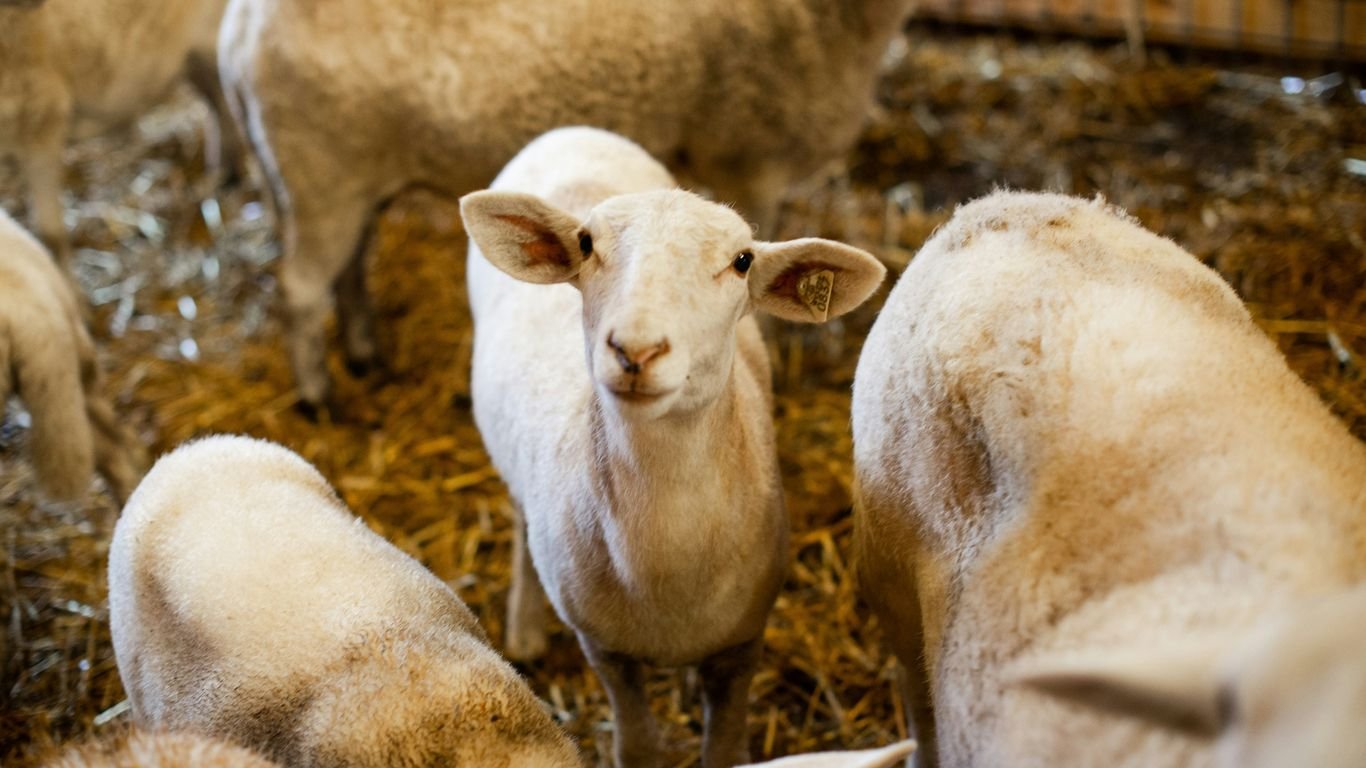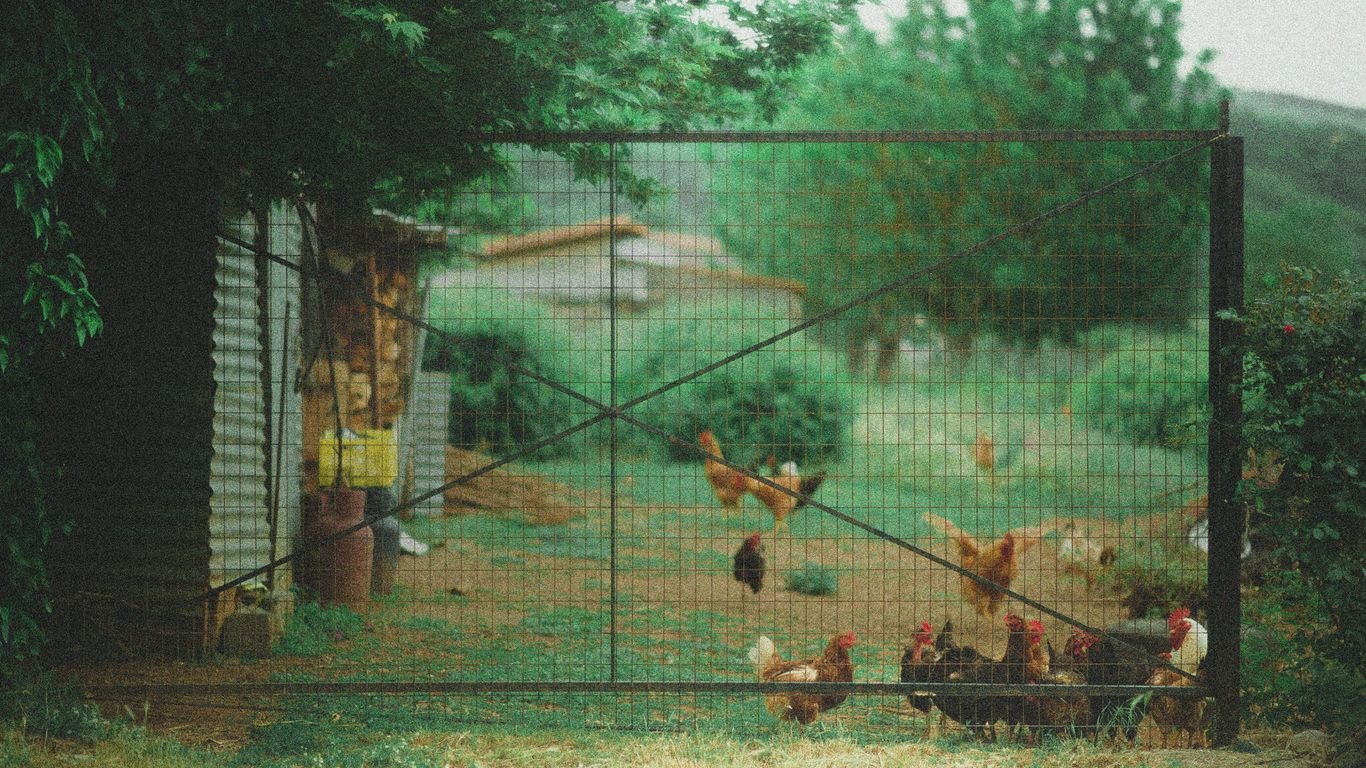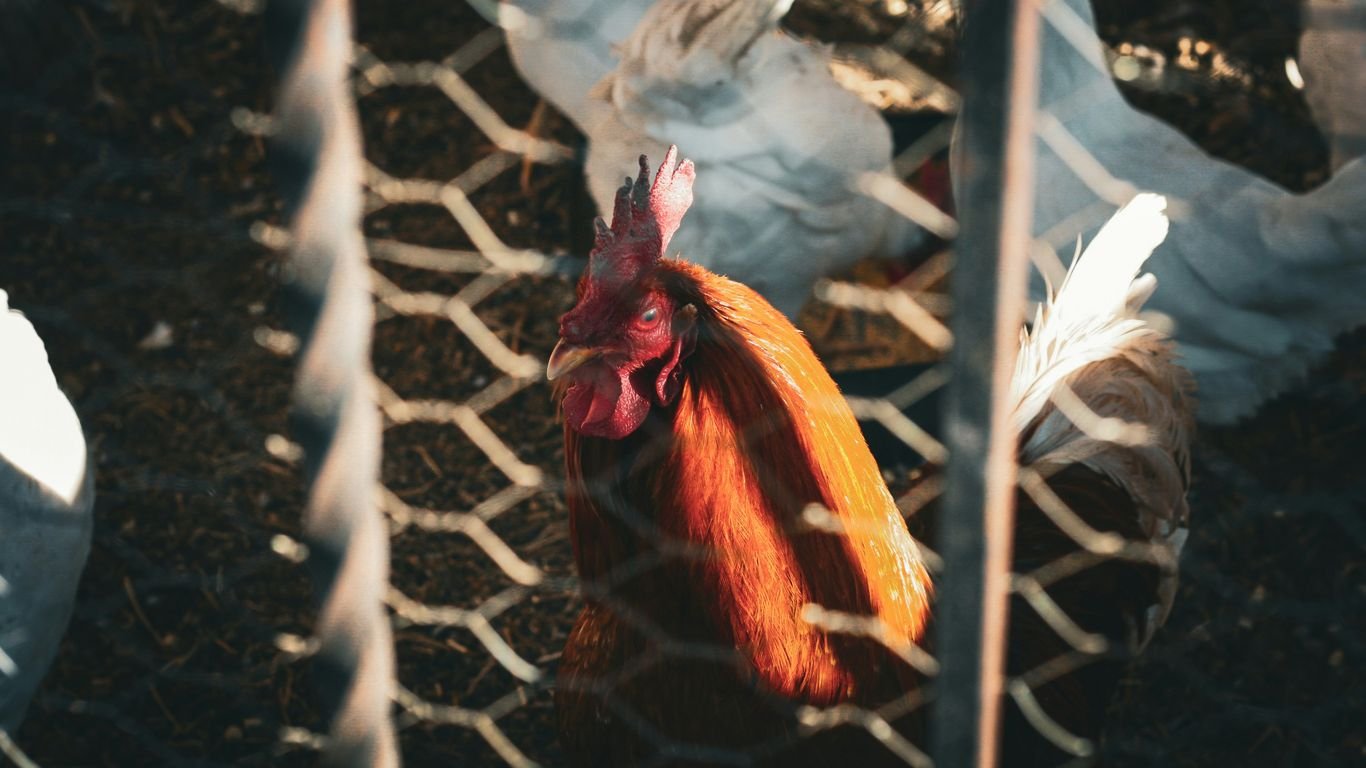Raising Ducks for Eggs and Meat: Cost vs. Return

We’ve been raising ducks for a few years now, and let me tell you, it’s been quite the learning curve. When we first started, we really just wanted to see if we could make a little extra money on the side, you know, supplementing our income with fresh eggs and maybe some meat. We figured, how hard could it be? Turns out, there’s a lot to consider, from the initial costs of getting started to the ongoing expenses that keep adding up. We’re here to share what we’ve learned about raising ducks for eggs and meat, focusing on the cost versus the return, so you can get a clearer picture before you jump in.
Key Takeaways
- The cost of raising ducks for eggs involves initial investments like ducklings and housing, plus ongoing expenses for feed and care. We found that understanding these costs upfront is key to figuring out if it’s profitable.
- Selling duck eggs can be a good income source, especially if you can get a decent price per dozen in your local market. Duck eggs are often more expensive than chicken eggs due to their size and richness.
- Raising ducks for meat requires choosing the right breeds and understanding processing. While it can be profitable, it’s a different ballgame than just collecting eggs.
- Don’t forget about other ways to make money, like selling ducklings or even using their manure as fertilizer. These little extras can add up and help offset your costs.
- We learned that keeping costs down is super important. Things like letting them forage for food or using kitchen scraps can really make a difference in your overall expenses.
Understanding The Initial Investment
Getting started with ducks means we need to think about what we’ll need upfront. It’s not just about the birds themselves; we’ve got to consider where they’ll live and how they’ll eat and drink. This initial setup is where a good chunk of our early spending will go.
Cost Of Ducklings
When we first look into getting ducklings, we’ll notice they can be a bit pricier than chicks. For example, a group of ten Pekin ducklings might set us back around $60. It’s a bit more than buying the same number of chickens, but ducks are pretty hardy and can be a great addition to our homestead.
Essential Housing Needs
Ducks don’t need super tall fences like chickens because they aren’t strong fliers and are slower on land, making them easier to contain. We can often get away with shorter fencing or even just herding them. Unlike chickens, ducks don’t perch; they need plenty of floor space and comfortable nesting areas. A simple coop or a secure run with protection from predators is a must. We also need to remember they require access to water for bathing, which is different from chickens who prefer dust baths.
Feed And Water Setup
Setting up a reliable water source is key. Ducks need water not just for drinking but also for keeping their eyes and nostrils clean, and for general hygiene. This could be a large tub, a kiddie pool, or even a small pond if we have the space. For feeding, we’ll need feeders that keep the feed clean and dry, preventing waste. Initially, we’ll be buying starter feed specifically for ducklings, which is formulated to give them the best start.
The upfront costs for housing and a good water setup are important. While ducklings themselves might cost a bit more, investing in a secure and comfortable environment will pay off in the long run with healthier, happier birds.
Ongoing Expenses For Your Flock

Once we’ve got our ducks settled in, the next thing on our minds is keeping them happy and healthy, which means thinking about the day-to-day costs. It’s not a huge amount, but it adds up, so it’s good to be aware of it.
Daily Feed Costs
Feeding our flock is probably our biggest ongoing expense. Ducks are pretty efficient eaters, but they do need a good quality feed to keep them laying and growing. We aim for a balanced feed, and the amount they eat depends on their age, breed, and whether they’re laying or molting. For our adult ducks, we figure on about a quarter-pound of feed per duck per day. This can fluctuate, especially if they’re free-ranging and finding a good portion of their own snacks.
- Young ducklings need a starter feed with higher protein.
- Adult layers do well on a layer feed, which has added calcium for strong eggshells.
- We supplement with greens and bugs when they’re available, which helps cut down on feed costs a bit.
Watering and Cleaning
Ducks are water lovers, and this means we need to provide them with plenty of clean water, not just for drinking but for splashing around too. This can mean a higher water bill than you might expect, especially in warmer months when they’re using it more. Keeping their living area clean is also super important to prevent disease. We’re talking about regular bedding changes and scrubbing down waterers and feeders. It’s a bit of a chore, but a clean environment is key to a healthy flock. We’ve found that using absorbent bedding like straw or wood shavings helps a lot with managing moisture and odor.
Healthcare and Supplements
While ducks are generally hardy birds, we still need to budget for potential health needs. This might include things like a good quality probiotic to support their digestion, especially when we change their feed or introduce new flock members. We also keep a basic first-aid kit on hand for minor injuries. Sometimes, depending on the season or their diet, we might offer extra vitamins or supplements. It’s always better to be prepared, and a healthy duck is a productive duck. We’ve learned that a little preventative care can save us a lot of trouble down the road, and it’s always good to have a relationship with a local vet who knows about poultry, just in case. For us, this part of the cost is more about peace of mind and being ready for anything, rather than a constant expense. It’s a good idea to look into duck farming in the Philippines to see how others manage costs, as practices can vary by region.
Maximizing Your Duck Egg Revenue
So, you’ve got a flock of happy ducks laying away, and now you’re wondering how to turn those beautiful eggs into a bit of extra cash. It’s totally doable! Duck eggs are a bit of a delicacy compared to chicken eggs, and people are often willing to pay a premium for them. The key is to know your market and highlight what makes duck eggs special.
Pricing Your Duck Eggs
When we first started selling, we looked at what chicken eggs were going for locally and then added a bit extra. Duck eggs are bigger, richer, and fantastic for baking, so they’re worth more. We’ve seen prices anywhere from $6 to $12 a dozen, depending on where you sell. It really depends on your area and what people are used to paying. Remember, a duck egg is often like two chicken eggs, so that higher price can still be a good deal for your customers.
Selling To Local Markets
Farmers’ markets are our go-to. We set up a small table, have our eggs nicely displayed, and chat with folks. It’s a great way to connect with customers and let them know you’re raising these birds right. We also found that some local restaurants and bakeries are interested in sourcing fresh duck eggs. It’s worth reaching out to them to see if they’d be interested in a regular supply. The demand for different types of eggs is growing, and duck eggs are definitely part of that trend.
Baking With Duck Eggs
This is where duck eggs really shine. Their higher fat content and richness make baked goods incredibly moist and delicious. We’ve found that cakes, cookies, and pastries made with duck eggs get rave reviews. You can even mention this in your marketing – "perfect for baking!" Some people even sell their baked goods at the same market where they sell their eggs, creating a nice little combo.
Duck eggs are a fantastic ingredient for baking. Their unique properties can make your cakes, cookies, and breads exceptionally rich and tender. Don’t underestimate the appeal of baked goods made with these special eggs.
Here’s a quick look at how many eggs you might get:
- Pekin Ducks: Can lay 150-250 eggs per year.
- Indian Runner Ducks: Known for high production, often 200-300 eggs per year.
- Muscovy Ducks: Lay fewer eggs, around 40-100 per year, but are great for meat.
We also found that ducks are more consistent layers than chickens, especially through the winter months when hens tend to slow down. This means a more steady income stream for us.
We’ve also heard that in some places, like Vietnam, there’s a growing interest in various egg products beyond just fresh chicken eggs, which could mean more opportunities for selling unique egg varieties.
Profiting From Duck Meat
When we think about raising ducks, the eggs often come to mind first, but let’s not forget about the meat! Ducks can provide a delicious and lean protein source, and there’s definitely a market for it. It might seem a bit more involved than selling eggs, but the returns can be quite good if you approach it right.
Choosing The Right Breeds
Not all ducks are created equal when it comes to meat production. For us, dual-purpose breeds are usually the way to go because they’re good at laying eggs and growing big and plump for meat. Breeds like the Pekin are super popular for meat because they grow fast and have a good amount of meat on them. Muscovy ducks are another excellent choice; they’re known for their lean meat and are also pretty efficient foragers. If you’re aiming for a higher-end market, some folks also look at breeds like the Rouen, though they might take a bit longer to reach market weight.
Processing And Packaging
This is where things can get a little hands-on. Processing your own ducks means you have control over the quality and can potentially save on costs. However, it does require some knowledge and the right setup. You’ll need to consider humane slaughter methods, plucking, evisceration, and chilling the carcass. For packaging, vacuum sealing is a great option to keep the meat fresh and extend its shelf life. If you’re selling whole birds, good labeling with the breed and weight is important. For those who don’t want to do the processing themselves, there are often local processors you can work with, though this will add to your costs.
Market Value Of Duck Meat
The price you can get for duck meat really depends on your location and how you sell it. Whole ducks can fetch a decent price, often more than a chicken. We’ve seen prices ranging from $10 to $20 per pound for processed duck meat, depending on the breed and the demand in our area. Selling cuts like breasts or legs separately can sometimes yield a higher price per pound, but it requires more work in the processing stage. Remember, a flock of 10 ducks raised for meat could potentially bring in a good chunk of change, especially if you’re selling them at local farmers’ markets or directly to restaurants. A small-scale duck farm with 100 ducks can yield a return on investment in 6-8 months, generating over ₹80,000 in net profit annually, which shows the potential for larger operations.
When considering duck meat, think about how you want to present it. Roasting a whole duck is classic, but duck breasts are often preferred for their tenderness. Duck legs, while sometimes tougher, can be slow-cooked into something amazing like confit. Offering different cuts or preparations can appeal to a wider range of customers.
Here’s a general idea of what you might expect:
- Whole Duck: Typically sold by weight, often between $10-$20 per pound.
- Duck Breasts: Can command a higher price per pound, maybe $15-$25.
- Duck Legs/Confit: Often sold in pairs, prices vary but can be competitive.
- Duck Fat: Rendered duck fat is a sought-after cooking ingredient and can be sold separately.
Additional Income Streams
Raising ducks can be more than just a way to get fresh eggs and meat for your table. We’ve found that our flock has opened up a few extra avenues for income that we hadn’t even considered at first. It’s pretty neat when your birds can help pay for themselves, and then some!
Selling Ducklings and Hatching Eggs
Once your ducks are established and laying, you can start thinking about selling the next generation. Fertile duck eggs are quite sought after by other homesteaders or folks looking to start their own small flocks. We’ve found that selling hatching eggs can bring in a nice little bit of cash, especially if you have a popular breed. Similarly, selling ducklings in the spring can be a good earner. People are often looking to get started with ducks and are willing to pay for healthy, well-started young birds.
- Hatching Eggs: Typically sell for $1-$3 each.
- Ducklings: Can fetch $5-$15 each, depending on age and breed.
We usually set aside a portion of our eggs for incubation and then sell the rest. It’s a good way to manage your flock size while making some money.
Value-Added Products
This is where things can get creative. If you’re good with your hands or enjoy crafting, there are a few options. Some people sell duck feathers to crafters who use them for fly fishing lures, art projects, or even decorative items. We’ve also heard of folks making and selling decorative items like pillows or ornaments using feathers. Another idea is to use those abundant duck eggs in baked goods. While duck eggs are great for eating as is, they also make cakes, cookies, and pastries incredibly rich and moist. Selling these baked goods at a local farmers’ market could be a good way to capitalize on the unique quality of duck eggs.
Manure As Fertilizer
Don’t turn your nose up at this one! Duck manure is packed with nitrogen and other nutrients, making it a fantastic fertilizer for gardens. If you’re diligent about composting your duck bedding and manure, you can create a rich soil amendment that gardeners love. We bag ours up and sell it by the wheelbarrow load or in smaller bags at the local market. It’s a great way to turn what would be waste into a useful product that people will pay for. It’s a win-win: you get rid of bedding, and gardeners get nutrient-rich fertilizer.
We’ve found that by diversifying how we utilize our ducks, we’ve significantly offset our initial investment and ongoing costs. It takes a bit of extra effort, but seeing those extra dollars come in from unexpected places is really rewarding.
Saving Money While Raising Ducks

Raising ducks can be a surprisingly economical endeavor. We’ve found that by being smart about how we manage our flock, we can significantly cut down on expenses, turning what might seem like a cost into a savings. It’s all about working with the birds’ natural behaviors and being resourceful.
Reducing Feed Expenses
Feed is often the biggest ongoing cost for any flock, and ducks are no exception. However, we’ve learned a few tricks to keep our feed bill down. First, we supplement their commercial feed with plenty of foraging. Our ducks absolutely love to roam and find their own snacks. They’ll happily gobble up insects, slugs, and even certain weeds. This not only saves us money on feed but also helps with pest control in our garden.
We also make sure to give them safe kitchen scraps. Things like vegetable peels, leftover cooked grains, and fruit trimmings are a hit. Just be sure to research what’s safe for ducks, as not all human food is suitable. By letting them forage and supplementing with scraps, we can often reduce the amount of commercial feed we need to buy.
Natural Pest Control Benefits
This ties right into reducing feed costs, but it’s worth highlighting on its own. Ducks are fantastic at keeping our yard and garden pest-free. They have a particular fondness for slugs, snails, and various insects that can wreak havoc on our plants. Instead of buying expensive pesticides, we simply let the ducks do their work. We’ll often let them free-range in areas that need pest management, and they’ll happily clear it out for us. This natural pest control is a huge money-saver and better for the environment too.
Lowering Waste Disposal Costs
Think about all the kitchen scraps and garden waste that usually ends up in the trash. Ducks can turn a lot of that into valuable resources like eggs and meat. We find that our ducks eagerly consume many things we would otherwise throw away. This means less waste going into our garbage bins, which can even translate to lower waste disposal fees if you pay by volume. It’s a win-win: we reduce our waste and the ducks get a tasty, free meal.
So, Should You Raise Ducks?
After looking at all the numbers and what it takes to keep them happy and healthy, we think raising ducks can be a pretty good deal. Whether you’re looking to cut down on your grocery bill with fresh eggs and meat or even make a little extra cash selling them, ducks can definitely pull their weight. They might need a bit more water and space than chickens, and their eggs taste different, which is something to consider if you plan to sell them. But for us, the benefits like natural pest control and turning kitchen scraps into food make it worthwhile. It’s not a get-rich-quick scheme, for sure, but with some planning and effort, these feathered friends can be a valuable addition to our homestead, offering both practical uses and a bit of farmyard charm.
Frequently Asked Questions
How much does it cost to get started with raising ducks?
Getting started can vary, but we’ve found that the initial costs include buying ducklings, setting up a safe place for them to live, and getting feeders and waterers. For about 10 ducklings, you might spend around $60, plus the cost of housing and supplies. It’s definitely an investment, but one that can pay off.
What are the best duck breeds for making money?
We’ve learned that dual-purpose breeds are usually the best bet. Think about breeds like Pekin, Muscovy, or Silver Appleyard. They’re great for laying lots of eggs and also grow well for meat, which helps us get the most value from our flock.
How much can we expect to earn from selling duck eggs?
Duck eggs are pretty popular! Depending on where you sell them, like local markets, they can go for $6 to $12 per dozen. If each of our ducks lays about 250 eggs a year, we can make a good amount of money just from selling the extra eggs.
Is selling duck meat profitable?
Yes, selling duck meat can be quite profitable, especially if you raise the right breeds. The price can range from $10 to $20 per pound. It takes some effort to process them, but the return can be substantial for our efforts.
Besides eggs and meat, what else can we sell?
We’ve discovered a few other ways to earn! We can sell ducklings and hatching eggs, which are popular with other homesteaders. Some people also buy duck manure because it’s great fertilizer for gardens, and we can even sell crafts made with duck feathers.
How do ducks help us save money?
Ducks are surprisingly good at saving us money. They eat a lot of bugs and weeds, which means we use fewer pesticides in our garden. They also happily eat kitchen scraps, cutting down on our food waste and potentially lowering trash fees. Plus, the eggs and meat we get reduce our grocery bills!






